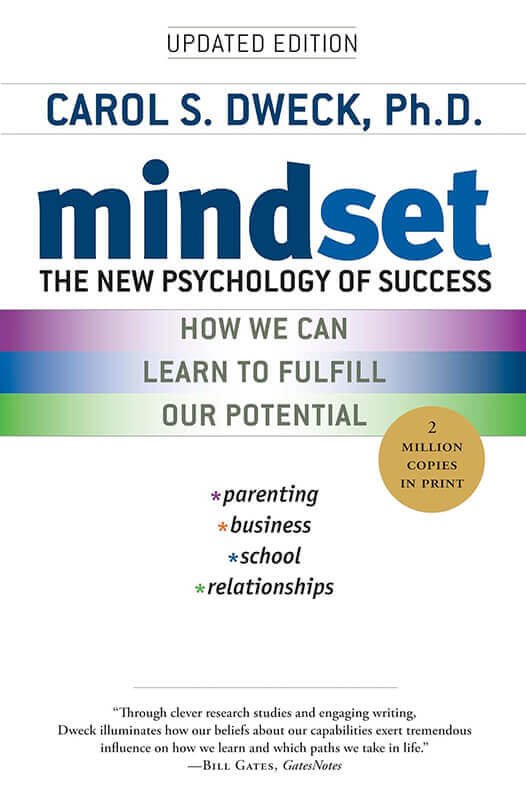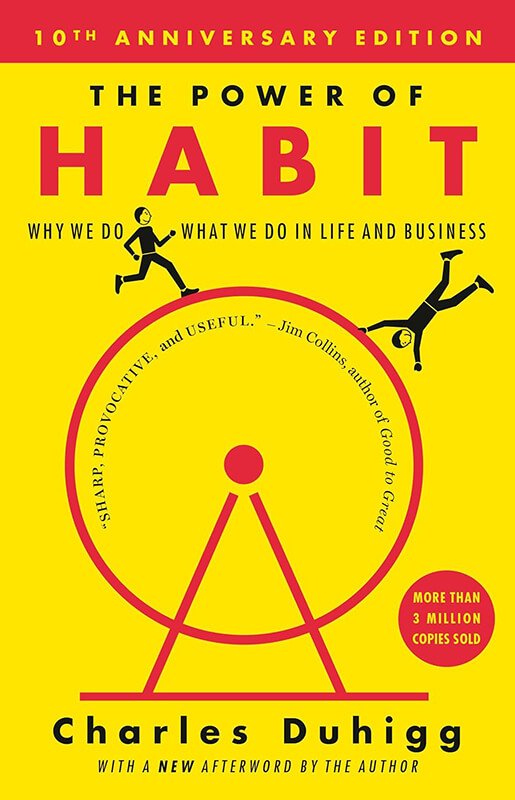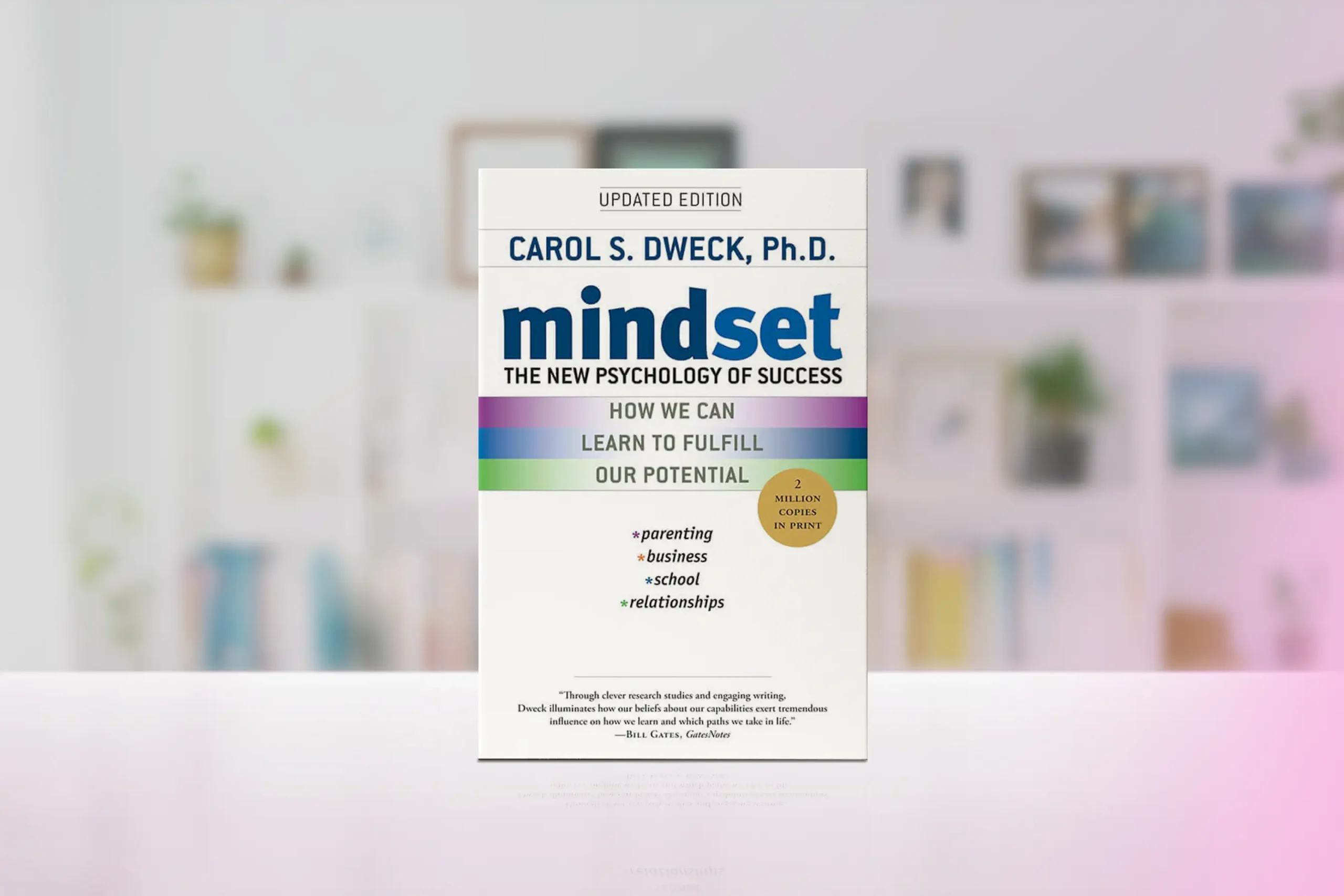Published in 2006 (updated in 2017), Carol S. Dweck’s “Mindset: The New Psychology of Success” introduced the groundbreaking idea that our beliefs about abilities shape our success.
The Stanford psychologist research shows how adopting a “growth mindset” fosters achievement, resilience, and fulfillment. Far from simple positive thinking, the book offers a practical roadmap for approaching challenges, setbacks, and personal potential in a world that demands continuous learning.
Core Concepts
The exploration of mindsets centers around several key ideas:
- The distinction between fixed and growth mindsets
- How mindsets shape our approach to challenges and learning
- The impact of praise and feedback on mindset development
- The role of mindsets in education, business, relationships, and personal growth
- Strategies for developing and nurturing a growth mindset
- The power of “yet” in fostering resilience and perseverance
Through these concepts, Dweck challenges readers to examine their own beliefs and provides tools for cultivating a more empowering mindset.
Chapter-by-Chapter Review
Chapter 1: The Mindsets
The author introduces the fundamental concept of fixed and growth mindsets, explaining how these two perspectives shape our approach to challenges and learning.
Chapter 2: Inside the Mindsets
This chapter delves deeper into the characteristics of each mindset, illustrating how they influence our behavior, motivation, and responses to failure.
Chapter 3: The Truth About Ability and Accomplishment
She challenges common misconceptions about talent and intelligence, presenting research that supports the malleability of our abilities.
Chapter 4: Sports: The Mindset of a Champion
Using examples from the world of sports, this chapter demonstrates how mindset impacts athletic performance and the development of skill.
Chapter 5: Business: Mindset and Leadership
She explores how mindsets influence leadership styles, corporate culture, and business success, offering insights for both leaders and employees.
Chapter 6: Relationships: Mindsets in Love (or Not)
This chapter examines how our mindsets affect our personal relationships, from friendships to romantic partnerships.
Chapter 7: Parents, Teachers, and Coaches: Where Do Mindsets Come From?
The author discusses the crucial role that authority figures play in shaping mindsets, particularly in children and young adults.
Chapter 8: Changing Mindsets
The final chapter provides practical strategies for developing a growth mindset, offering hope and actionable steps for personal transformation.
Key Strengths
- Presents a powerful, research-backed concept with wide-ranging applications
- Offers practical strategies for developing a growth mindset
- Uses relatable examples from various domains of life
- Challenges readers to reflect on their own beliefs and behaviors
- Provides a hopeful message about human potential and the ability to change
Potential Drawbacks
- Some readers may find certain examples repetitive
- The concept, while powerful, may seem oversimplified at times
- Implementing mindset changes can be challenging, requiring ongoing effort
Ted Talk: Carol Dweck talks about the growth mindset
Carol Dweck explains how our brains learn and solve problems, contrasting two mindsets: seeing a tough problem as proof of lack of ability, or as something you just haven’t solved yet.
Who This Book Is For
“Mindset” offers valuable insights for a wide range of readers, including:
- Educators and parents looking to foster growth mindsets in children
- Business leaders aiming to create more dynamic and resilient organizations
- Individuals seeking personal growth and improved performance in various areas of life
- Coaches and mentors who want to effectively support others’ development
Final Review
Carol S. Dweck’s “Mindset: The New Psychology of Success” is a transformative work that challenges us to reconsider our fundamental beliefs about ability and potential. By introducing the concept of growth mindset, She provides a powerful framework for personal development, offering hope and practical strategies for those looking to unlock their full potential.
The book’s strength lies in its ability to blend scientific research with relatable examples, making complex psychological concepts accessible to a broad audience. The writing is clear and engaging, inviting readers to reflect on their own mindsets and consider how they might be limiting their growth.
While the concept of mindsets may seem simple, its implications are profound and far-reaching. Readers who embrace the growth mindset philosophy may find it revolutionizes their approach to challenges, learning, and personal development.
Rating: 4.6/5
This is an essential read for anyone looking to unlock their potential, overcome obstacles, and achieve greater success in all areas of life.

Alternative Books
You might also enjoy these related books on personal growth and psychology:

Grit: The Power of Passion and Perseverance by Angela Duckworth
An exploration of how perseverance and passion contribute more to success than innate talent.
Rating: 4.6/5

The Power of Habit by Charles Duhigg
A fascinating look at how habits shape our lives and how we can change them to achieve greater success.
Rating: 4.6/5

Atomic Habits by James Clear
A practical guide to making small changes that lead to remarkable results in personal and professional life.
Rating: 4.8/5





